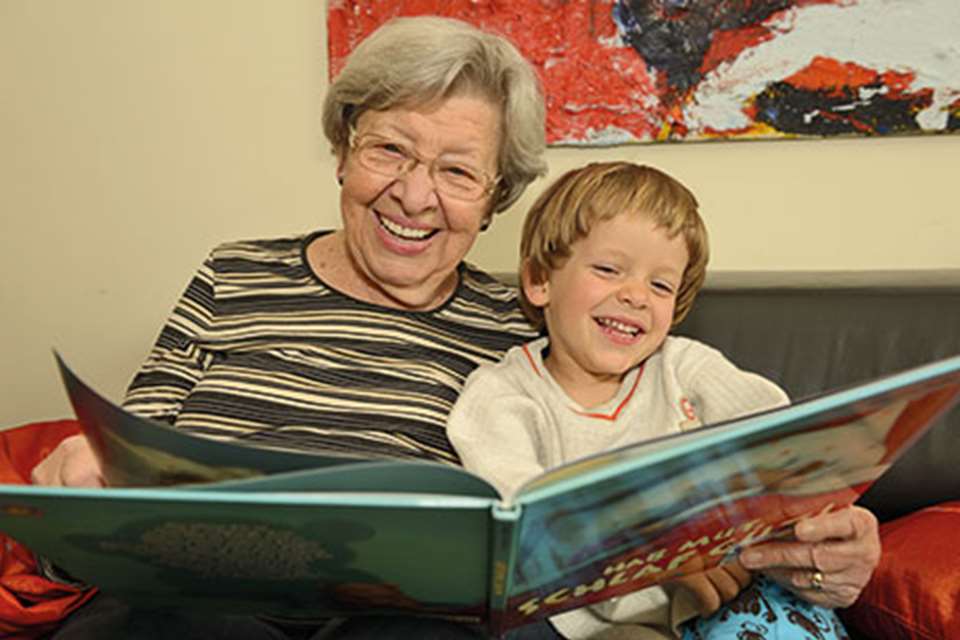EYFS best practice - All about… home education
Monday, June 11, 2018
The number of children being home educated is rising, and the Government wants to give councils more power to monitor them. Meredith Jones Russell reports

Somewhere between 45,000 and 50,000 British children are currently believed to be home educated. This number has risen by about 40 per cent over three years, up from about 34,000 children in 2014-15 to estimates of 48,000 in 2016-17. But these numbers remain estimates. With no mandatory registration system for families choosing to educate their children at home, there are no official figures.
While parents must alert the school if they are withdrawing their child, the law does not require them to notify the local authority unless the child is attending a special school under a Statement of Special Educational Needs or Education, Health and Care Plan.
In December 2017, Ofsted’s chief inspector, Amanda Spielman, said overseeing the growing number of home-educated children was ‘becoming a challenge for local authorities’, and while they make up just 0.5 per cent of the English and Welsh school-age population, and under 0.1 per cent in Scotland and Northern Ireland, calls for more statutory powers to monitor home-educated children have been growing.
POWERS TO MONITOR HOME EDUCATORS
Local authorities currently have no express power to monitor home-education provision, although they are required to identify children not receiving a suitable education. According to the Department for Education (DfE), ‘for most home-educated children in most local authority areas, oversight is limited to an annual agreed visit or discussion of work; and in many cases where the family is known to be providing suitable education, the authority may consider this to be perfectly satisfactory and have no desire, in general, to spend further time on the matter.’
Consultation
Nonetheless, a consultation on improving standards of home education has been launched by the DfE, asking for the views of parents and local authorities on how to ensure children receive a suitable standard of education at home.
Parents and local authorities have until 2 July to provide their views on:
- how local authorities can monitor the quality of home education to make sure children are taught the knowledge and skills they need
- how effective registration schemes are for children who are educated at home
- how the Government can better support families who choose to educate their children at home.
Meanwhile, the Welsh Government has also announced plans for increased scrutiny and support for home education, and a Home Education (Duty of Local Authorities) Bill requiring local authorities to monitor the ‘educational development’ of children receiving home education through annual assessments, and parents to register all home-educated children, is going through the House of Lords.
The proposed act would ask local authorities to assess the development of each child receiving home education every year, which ‘may include’:
- a visit to the child’s home
- an interview with the child
- observation of the child’s work
- an interview with the child’s parent.
A legal register
In England, councillor Roy Perry, vice chairman of the Local Government Association’s Children And Young People Board, says, ‘Councils fully support the rights of parents to educate their children in the best way that they see fit, and the vast majority of parents who home educate their children do a fantastic job, and work well with their local council. But for the minority of children where this is not the case, councils need the powers and appropriate funding to enter homes or other premises to check a child’s schooling, and make sure they aren’t being taught in unsuitable or dangerous environments.
‘Placing a legal duty on parents to register home-schooled children would also help councils to monitor how children are being educated and prevent them from disappearing from the oversight of services designed to keep them safe.’
Sile Stuttard, who home-educated two of her four children (see Case studies), says increased Government oversight must strike a delicate balance. ‘If oversight is supportive, creative and informative, aimed at ensuring children’s needs are being met, I think it would be wonderful. I would have loved an insightful and experienced educator, in the model of the old-style school improvement advisor, to offer me inspiration, guidance and, most importantly, confidence. As a home educator, it is easy to feel not good enough.
‘However, if oversight becomes a mechanism for interference or control, I think that could be problematic, as the boundary between family privacy and the need for social care is blurred. In these days where the Prevent duty is uncomfortably controlling of individual discretion and freedom of expression, the mechanism would need to be carefully designed not to prejudge, while also properly safeguarding children.’
Radicalisation
In its consultation, the DfE mentions ‘new issues’ affecting home education, specifically ‘the vulnerability of some children to radicalisation, and the spread of unregistered schools offering services to home-educating parents.’
However, some home educators argue this is conflating two separate issues. Mike Wood, founder of Home Education UK, an online forum, says, ‘Really, the current concern is about unregistered schools. Those responsible for national security are concerned and fearful of Muslim schools and are dressing it up as welfare concern. There is no evidence of home-educated children being involved in any violent acts, and going to a mainstream school certainly doesn’t save you from being radicalised.’
The only solution?
Jay Harman, education campaigns manager at Humanists UK, says a register of home-educated children is the only way to properly safeguard them. ‘If we felt there was a way of solving the problem of unregistered schools without impacting home educators, we would do that, but we don’t see that there is.
‘Without some kind of register, it is very difficult for Ofsted, local authorities or the DfE to check whether children are receiving a suitable education. Unregistered schools often claim to be just supplementary religious education providers, and without a register there is no way of finding out who is actually being home educated.
‘Our view is the safeguarding powers of local authorities are sufficient to complement a register, even a voluntary one if it was genuinely used, to help local authorities know where children are so they can safeguard them properly.’
Striking the wrong note?
Dr Helen Lees, reader in alternative education studies at Newman University, argues the consultation has struck the wrong note. ‘The draft guidelines are an attempt to give local authorities the same powers as before, but the tone and qualitative atmosphere in which they are presented is entirely different,’ she says.
‘The key thing is a paragraph about taking people’s children away. In a document outlining practice under the assumption that it is non-abusive, putting in something so scary is completely inappropriate.
‘I am not against a registration of numbers, although that comes with all the problems of monitoring. I can see why the Government wants to know who is home educating, but there is no need to frighten people in a desire to try and keep them safe.
‘I appreciate they feel out of control and desperate because of the rise, as they perceive it, in radicalisation and numbers. People home educating are out of the workforce, so we lose GDP and national power. But the Government needs to improve its relationship with home educators through dialogue and mutual engagement, and cease and desist this campaign of control.’
GROWTH
The DfE suggests a number of reasons why parents choose to educate at home:
- ideological or philosophical views
- religious or cultural beliefs
- dissatisfaction with the school system
- distance to a local school
- bullying
- a short-term intervention for a particular reason
- a child’s unwillingness or inability to go to school
- special educational needs not being met.
The Association of Directors of Children’s Services (ADCS) suggests the recent rise in the number of home-educated children may be due to improved local authority recording techniques, greater parental awareness, rising birth rates or better sharing of information between agencies, such as doctors and housing groups.
Dissatisfaction with testing regime in schools
Ms Stuttard says flaws in the school system are largely responsible for the growth of home education. ‘Mental ill-health is rising among school-age children. It seems likely this can be attributed to the pressures of a performance-driven education system, although it may also be due to increasing awareness of mental health issues affecting children so that more people are coming forward.
‘I attended a parliamentary outreach session run by the Education Select Committee on academies, where there was almost unanimous agreement that academies are not transparent in their governance, and parents are therefore less involved than they would like. Perhaps parents who feel able to are voting with their feet.’
Dr Lees agrees dissatisfaction with schools is a large factor. ‘There are a number of problems in the school system and people are leaving for rational, sane reasons. The testing regime from an early age is a big issue. But the media has also promoted home education as a pathway. Until recently, way too few people knew they didn’t have to send their children to school.’
Amy Clapinson, who plans to home educate her son when he reaches school age in September (see Case studies), agrees. ‘A “compulsory school age” is actually a complete misnomer because school is not compulsory,’ she says. ‘It has always been the responsibility of the parents, but people who are realising that and doing it are very much part of a growing movement.’
Schools ‘off-rolling’ children
So-called ‘off-rolling’ to improve exam results and league table positions is also thought to be increasing numbers, with a study by the National Foundation for Educational Research finding 5 per cent of teachers believe they can encourage parents to home educate.
Meanwhile, Ofsted has said the numbers of children with special educational needs or disabilities (SEND) guided towards home education is ‘typically high’, with Ms Spielman saying it was ‘unacceptable’ that some parents had been asked to keep their children at home because school leaders said they could not meet their children’s needs.
Children with SEND
Jennifer Skillen, the owner of HE-Special, a website offering peer-to-peer emotional support and practical advice to parents providing home education for children with SEND, says, ‘The SEN side of home education has grown over the years. With austerity, we have fewer teaching assistants and larger class sizes, and a lot of special schools closed down leaving fewer diverse options. Many of our families try to send their children to school at first, but some realise from the beginning that this won’t be suitable and home educate right away.
‘There are as many different ways to home educate as there are special educational needs, so home education often suits these families more. There’s a great diversity.’
Ms Skillen says home education seems currently to be particularly popular with parents of children with autism and Down syndrome, but these trends fluctuate. ‘Lots of parents used to educate their dyslexic children at home, but dyslexia is increasingly better catered for in schools,’ she explains.
‘There has definitely been a shift to more practical reasons for home education, and the philosophical argument has been somewhat overshadowed. People who were almost libertarian and didn’t want to have anything to do with the Government would always have home educated, but a lot of people are now saying if you gave them a good school they would send their child back. Often people just take their children out for a while and then return, or parents who flexi-school. We accept that home education is not for everybody.’
ATTITUDES
Ms Skillen is pleased she has never faced any criticism of her choice to home educate. ‘People’s attitudes have always been pretty good. I have never felt attacked,’ she says. However, Dr Lees says home education is still broadly misunderstood by many.
‘There are forms of prejudice about home education as an outlier, as weird,’ she says. ‘It’s a form of educationism. Education is fundamental to who we are and who we are in society. It’s really important we get home education right because it’s a sign of proper democracy, in which people are free to self-express and self-form rather than forced into a formation of self that the state requests.
‘Home education allows flexibility and freedom and choice, which are the bedrocks of a properly functioning society. We need better education about home education.’
HOME-SCHOOLING TERMS
Structured learning: home education in a formal manner, using a fixed timetable of school hours and terms and a curriculum based on traditional school subjects, perhaps the national curriculum.
Autonomous learning or ‘unschooling’: children decide what, how and when they learn, using individual interests and a natural curiosity as a starting point, without a curriculum or imposed testing.
Deschooling: an adjustment period for children and parents after leaving a mainstream school to start home education. This may be used to move away from a school-based mindset and start to acclimatise to a home-based educational environment.
Flexi-schooling: a child receives part of their total educational provision at school, typically for a few days a week, and at other times is educated at home.
CASE STUDIES
Amy Clapinson, Bristol
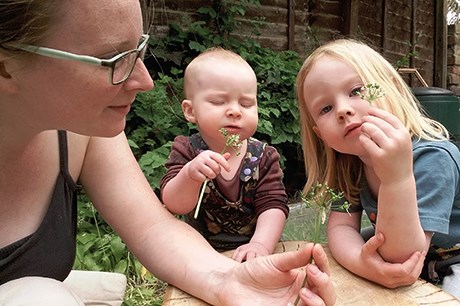
A mother of two, Amy will home educate her four-year-old son, Arthur, from September
‘Arthur is currently at a very gentle Montessori nursery which is very child-led and respectful, but I am really looking forward to taking him out. It has been an interesting journey because I never thought I would home educate. I never had an ideological stance on it. It has come about very organically. After having a baby and seeing they always sleep more or less than people say, I realised you don’t need to fit a mould. He thrived if I just listened to his cues.
‘The testing in schools does appal me, though. Why put children through it? Scandinavian models don’t. You can see how children are doing by observing. Children are fantastic at being creative, and schools can devalue that. Creativity feeds into everything, especially confidence. This standardised need to prove they are doing well makes them stressed and ill, and I’m really glad we are opting out of that.
‘We will be unschooling him, rather than replacing school at home, because he tends to know what he needs. I’m training myself at the moment, so that when he asks questions I don’t answer them but allow him to follow that interest. I want to be his facilitator rather than his teacher, and feed his interests rather than steer them. I’m hoping for a free, unstructured approach, which is scary as a very schooled adult! People say deschooling should be one month of doing nothing for every year you have been schooled. Thankfully, Arthur hasn’t had any schooling yet, but I have a lot to do!
‘I will seek out other people to help. Organisations like The Garden in Bristol, a democratic community for children, provide ideas and support. Involving the community in children’s learning is very important.’
Jennifer Skillen, Gloucestershire
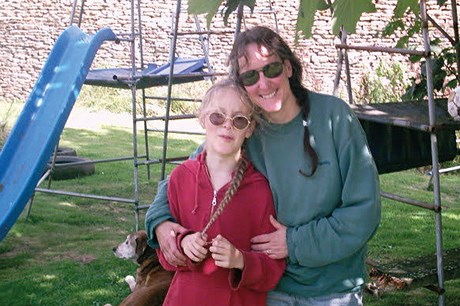
Jennifer home educated her son Peter, who has autism and Ehlers-Danlos syndrome. He is now 21
‘The chronic fatigue and pain Peter experienced disabled him so much he could not attend school. Essentially, I still home educate him now. As he has grown, the way we home educate him has changed too. He is able to go really far ahead in information he is capable of taking in, but in some things he’s very behind. I’m hoping he will be able to do some exams at some point, though.
‘In the last 30 years with the advent of the internet, home education has become much easier to do. A lot of online tools have been developed for more structured learning; teaching reading or maths. But for some children, structured schooling just doesn’t work and they need more autonomous learning.
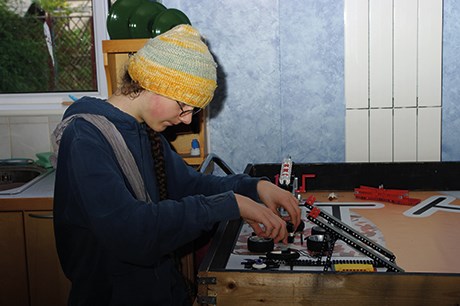
Peter
‘For Peter, a lesson plan didn’t work, but we needed to find things he was interested in. He is very into Lego, and when teaching him to learn to read systematically wasn’t working, we used the Lego Bionicle books. Soon he was able to read forums online to access Lego fan fiction.
‘Khan Academy is a fantastic website for resources, but I tried it with Peter and he hated it. He purposely gave the wrong answers. But he became very interested in the work of Vi Hart who works there, and he has looked her up and now spends a lot of time on the video channels of university professors.
‘There is nothing like having to teach to make you learn yourself. Helping to facilitate my son’s learning has opened my life up so much. My background was in neuroscience, but I am now doing a PhD in computing, which I well may not have thought to do without having home educated my son.’
Sile Stuttard, London
Sile educated two of her four children at home until they were nine and ten
‘I don’t like the term “home schooling”. Education is a “leading out” and schooling is a formation, which are very different pedagogical approaches.
‘I home educated due to a combination of disliking a system which emphasised attainment output at the cost of experiential learning, and dissatisfaction with local provision.
‘The benefits were that it was lots of fun, with lots of adventures and exploration and time with the children outdoors, following our own interests and igniting passions. However, with minimal family support, it was also exhausting for me. And because as a full-time educator I couldn’t manage a second job – though this wouldn’t apply to everyone – I never had enough money, and it was difficult always looking for and having to create social occasions for the children.
‘I’m a single mum now and I couldn’t possibly have home educated my kids had I been single then.
‘I home educated at primary level before sending my kids to secondary school, and I now think a good nursery or primary school offers children everything that I could.
‘I still think the days are too long, the emphasis on testing and data is misguided, and the classroom-to-play learning balance is skewed, but nonetheless the best schools still find room for fun, creativity and stimulation.
‘I thought home educating at secondary level would be much harder, but in fact it would have been easier on me. The children would be more independent, which would allow me my own independence too. There is far more time wasted at secondary school, with less opportunity for a broad-based longitudinal curriculum and less opportunity for individual self-development. Children are unduly stressed, dropping out of school because they have buckled under pressure. So, I think it’s worth considering options.’
CASE STUDIES: AMERICAN MICRO-SCHOOLS
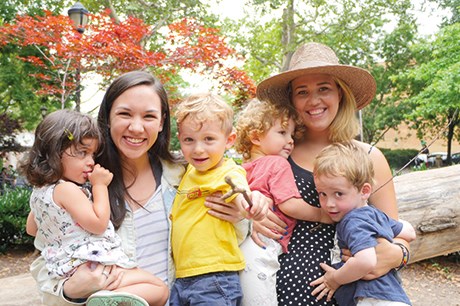
A range of micro-schools in the United States, pictured above and below
A trend towards micro-schools and co-ops is growing in America, as parents search for an alternative to mainstream schools that still allows children to learn in a class of peers. Micro-schools typically have around 15 children of mixed-age groups in a class together, and may only meet on a few days per week.
 Holmes Wilson, co-founder of CottageClass, an organisation set up to help parents run micro-schools, explains, ‘In the US, typical schools aren’t a fit for every child, and private schools can be extremely expensive.
Holmes Wilson, co-founder of CottageClass, an organisation set up to help parents run micro-schools, explains, ‘In the US, typical schools aren’t a fit for every child, and private schools can be extremely expensive.
‘Co-ops are a great way for home-schoolers to learn and interact with other children, and having other adults involved in the educational process can be a huge support and relief to parents who home-school. We develop not only socially, but also intellectually through interaction with peers. So, even if you send your child to a traditional school, creating a micro-school with some friends, whether you call it a school, a playgroup, or whatever, is a great thing to do.
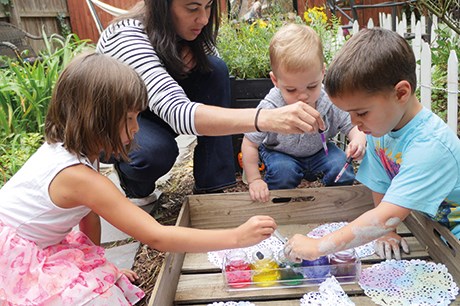
‘Traditionally, you saw a ton of people home-schooling in the US for religious reasons. That’s still very common, but increasingly families are doing it out of a feeling of pure necessity, or the conviction that the result for their child will be better. This conviction is well-founded. One of the things that always strikes me about home-schooled children is how comfortable they are, even at a young age, expressing themselves with confidence to adults, how curious they are, and how eager they are to continue learning.
‘I think some of the dividing lines traditional schools put between ages are somewhat artificial. For example, you hear people talk as if younger children just need care and comfort, while for kids of five and up, it is suddenly about education. But that’s obviously not right. Three-year-olds have rapidly learning minds and their intellectual growth needs to be considered, while five-year-olds still need an environment that’s comfortable and caring to do their best learning.
‘There’s increasing awareness that between birth and five is the most critical stage of a child’s development, but that’s where there’s the least emphasis on education. Then once “education” officially begins, we quickly throw any idea of comfort out the window and throw children into environments that can be very, very harsh. It doesn’t make sense.’
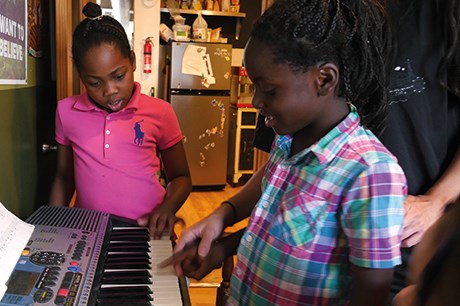
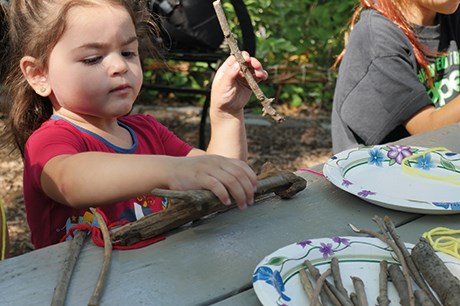
FACTS AND FIGURES
A survey was conducted by the Association of Directors of Children’s Services among 118 local authorities in England, in the autumn of 2017. Its findings suggested:
Around 45,712 children and young people were being home educated
Slightly more males than females. were home educated up to the end of Key Stage (KS) 3. This trend reversed in KS4 and 5.
There was a significant jump in the number of children being home educated between KS1 and 2.
Most respondents reported over 80 per cent of their known home-educated children had previously attended school.
General dissatisfaction with school was the most common reason for families choosing to home educate.
92 per cent of respondents said zero to 10 per cent of their known home-educated children had SEND.
Councils can make an ‘informal enquiry’ to check children are receiving a suitable education at home, and can serve school attendance orders (SAOs).
Of the 112 local authorities that responded, 66 (58 per cent) reported issuing no SAOs in the previous academic year, while 34 councils reported a total of 85 children being returned to school as a result of formal SAO action via the courts.



